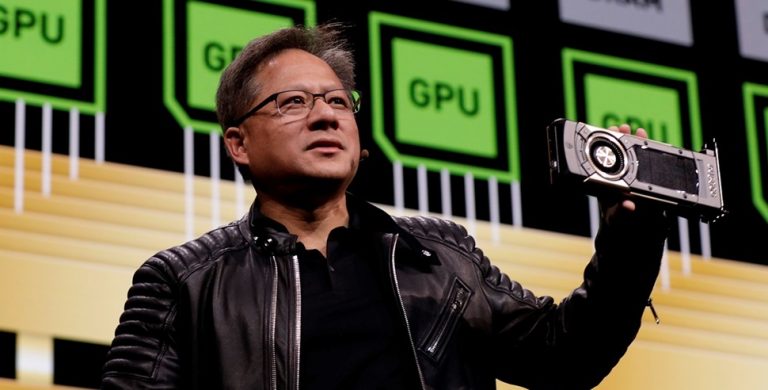Trump Administration to Allow UAE Import Over 1m Nvidia Chips, Igniting Security and Policy Debate Over Export Controls

The Trump administration is reportedly considering a sweeping deal that would allow the United Arab Emirates (UAE) to import more than one million of Nvidia’s most advanced artificial intelligence chips, a decision that would significantly expand the Gulf nation’s AI infrastructure while dismantling a core piece of the Biden-era technology export framework.
According to a Bloomberg report on Tuesday, the deal, still under negotiation, could permit the UAE to purchase 500,000 Nvidia AI chips annually from now through 2027. The chips in question are understood to include Nvidia’s H100s, the current benchmark in large-scale AI model training. If finalized, the agreement would mark one of the largest foreign shipments of U.S.-made AI chips to date. It would override export controls introduced during Joe Biden’s presidency that restricted such transfers on national security grounds.
Under the terms being discussed, about one-fifth of the chips would be allocated to G42, the UAE’s flagship state-backed artificial intelligence firm based in Abu Dhabi. The remaining 80% would reportedly be directed toward U.S. companies developing data center operations in the region. Among them could be OpenAI, the developer of ChatGPT, which, according to the report, may announce new AI data center capacity in the UAE as soon as this week.
Register for Tekedia Mini-MBA edition 17 (June 9 – Sept 6, 2025) today for early bird discounts. Do annual for access to Blucera.com.
Tekedia AI in Business Masterclass opens registrations.
Join Tekedia Capital Syndicate and co-invest in great global startups.
Register to become a better CEO or Director with Tekedia CEO & Director Program.
The scale of the deal is significant. Sources familiar with the terms told Bloomberg that over the lifetime of the agreement, G42 could access computing capabilities equivalent to between 1 million and 1.5 million H100 chips—around four times the number it could have obtained under the Biden-era controls.
A spokeswoman for the Department of Commerce confirmed last week that the Trump administration intends to scrap the Biden administration’s “AI Diffusion Rule,” a regulatory framework that categorized countries into three tiers and imposed varying levels of restrictions on the export of advanced U.S.-made AI chips.
Under that rule, countries like China and Russia, classified in Tier 3, were barred from receiving the chips. Tier 2 countries, such as Mexico and Portugal, would have faced new restrictions for the first time. Only Tier 1 allies like Japan and South Korea were excluded from the limitations. The now-defunct policy was scheduled to take effect on May 15 before the Department of Commerce formally rescinded it.
Instead of blanket restrictions, the Trump administration is pursuing a model based on bilateral negotiations with trusted allies, while tightening scrutiny on any pathways that could enable indirect transfers to adversaries.
“The Trump Administration will pursue a bold, inclusive strategy to American AI technology with trusted foreign countries around the world, while keeping the technology out of the hands of our adversaries,” said Jeffrey Kessler, U.S. Secretary of Commerce for Industry and Security, in a statement on Tuesday.
The deal, however, is raising alarm among U.S. national security experts and lawmakers who remain skeptical of the UAE’s ties to China. G42, in particular, has drawn scrutiny from so-called China hawks in Washington who allege the Abu Dhabi-based firm could act as a backchannel for transferring advanced U.S. technology to China, circumventing direct export bans.
While no evidence has been made public to prove such transfers have taken place, the perception of strategic vulnerability has intensified. Washington’s concern is that once high-end AI chips like the H100s are installed in overseas data centers, it becomes difficult to monitor or control how they are used, or with whom they share compute access.
In the interim guidance released on Tuesday, the Department of Commerce reiterated that it remains illegal for U.S. companies to knowingly provide advanced AI chips for use in training large-scale AI models inside China, regardless of where those chips are physically located. The guidance also warned that any use of Huawei’s Ascend AI chips—blacklisted by the U.S.—remains a violation of export law.
The potential chip export agreement comes just after President Donald Trump secured a $600 billion investment pledge from Saudi Arabia to support projects in the United States. Though separate from the UAE negotiations, the Saudi investment underscores the administration’s broader diplomatic and commercial engagement with the Gulf region, especially in sectors like AI, clean energy, and digital infrastructure.
This approach represents a major break from the Biden administration’s containment strategy around critical technologies. Rather than restricting access broadly out of concern over security leaks, Trump’s Commerce Department appears to be favoring aggressive commercial expansion, cementing American tech dominance in regions where Chinese influence is also growing.
The policy pivot may also be designed to stifle global demand for Chinese alternatives. By flooding markets with U.S. AI hardware, Washington could undercut Beijing’s attempts to sell its own AI infrastructure to countries shut out of American tech.
News of the possible UAE deal triggered a rally in Nvidia shares, which surged more than 6% following the report. The gain lifted Nvidia CEO Jensen Huang’s net worth by several billion dollars, pushing his total wealth to nearly $120 billion, according to Bloomberg’s Billionaires Index.
Though Nvidia declined to comment on the report, industry analysts suggest that the deal would boost the chipmaker’s already dominant position in the AI hardware sector, at a time when demand for large-scale compute infrastructure is surging across the globe.
OpenAI, whose large models are already among the most computationally intensive in the world, would also benefit greatly from regional AI supercomputing hubs in the Middle East, especially as the company eyes expansion beyond U.S. borders.












